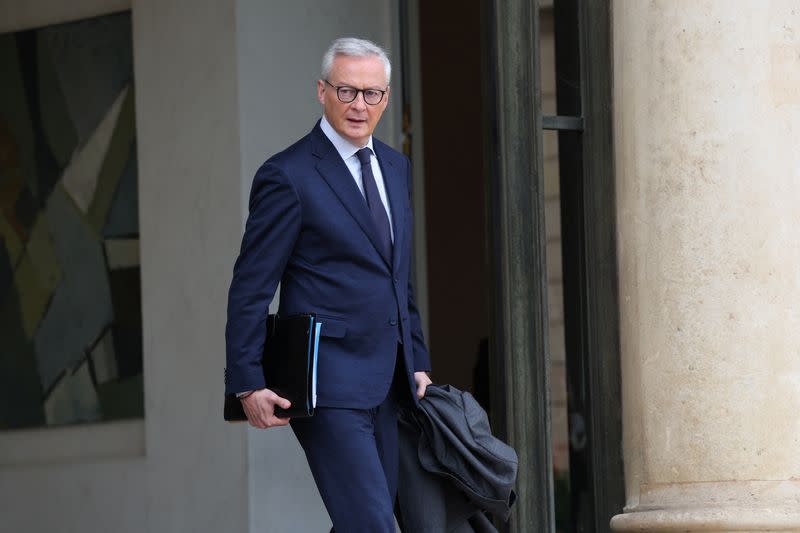France's Le Maire says still need a few days for EU fiscal rules talks

PARIS (Reuters) - France and Germany need a few more days of negotiations to narrow their differences over how strict new EU deficit and debt rules should be, French Finance Minister Bruno Le Maire said on Friday ahead of talks with his German counterpart.
EU finance ministers aim to wrap up months of talks in December over the rules that underpin the euro. The rules have been suspended since 2020 but are to be reinstated from 2024.
EU governments want to update them before they kick in again.
Speaking in Paris before heading to Berlin for talks with German Finance Minister Christian Lindner, Le Maire said a deal between France and Germany was a prerequisite for a broader agreement.
"Christian and I have been working for months, each has taken a step in the direction of the other," Le Maire told journalists.
"I think we still need a few days to bring our positions together and, I hope, reach a compromise that would open the way for an EU-wide agreement," he added.
Currently the Stability and Growth Pact rules limit budget deficits to 3% of GDP and public debt to 60%, with disciplinary steps for those not cutting any excess fast enough.
Many European governments already far exceed the limits, and there is a broad consensus that the rules need to be updated to allow more investment, especially to fight climate change, although they diverge over how much flexibility there should be.
(Reporting by Leigh Thomas; Editing by Hugh Lawson)

 Yahoo Finance
Yahoo Finance 